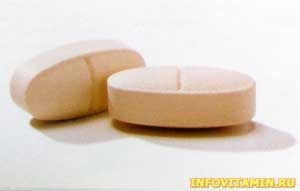Phosphorus — description, properties and application, food sources, daily allowance, contraindications
The mineral part of bones and teeth is formed mainly by apatite, i.e. calcium phosphate, therefore phosphorus is important for the strength of these structures. However, it is present in all cells, forming part of their membranes, genetic material, and energy-carrying molecules.
Phosphorus — what is it?
 Phosphorus. |
An adult contains on average about 650 g of phosphorus — this is the second place among minerals after calcium. Naturally, we are not talking about pure matter, but about phosphates (mainly calcium, sodium, potassium), including those embedded in a variety of organic molecules. Bones and teeth account for 85% of phosphorus, and the rest is concentrated primarily in the heart, kidneys, brain and muscles. Phosphorus interacts with many substances, but most often it combines with calcium. In bones, the ratio of calcium and phosphorus is 2 : 1; in other tissues, the proportion of phosphorus is higher.
Useful properties of phosphorus and its role in the body
Phosphorus is a part of phospholipids — molecules without which the formation of cell membranes is impossible. Adenosine triphosphate (ATP) is a universal biological form of storing and transporting energy obtained by burning food. Hence, phosphorus is directly involved in almost all biochemical reactions. Many of them require activation of enzymes by phosphorylation. Similarly, it activates and B vitamins, which allows them to work for the benefit of man.The main use of phosphorus
So, calcium phosphate is the main part of the bone mineral substance. This salt seems to be packed in a thick lattice of collagen protein, which, like everything else, is synthesized by specialized cells (osteoblasts), which are also responsible for its mineralization. The ratio of calcium/phosphorus in the bone composition is almost constant — about 2:1. This means that these elements are absorbed or lost here at the same time. However, if too much phosphorus enters the body, this balance may be disturbed — secondary hyperparathyroidism (hyperfunction of the parathyroid glands) will occur, which will stimulate the mobilization of bone calcium into the blood, i. e. demineralization of the skeleton, which is fraught with osteoporosis.
Additional benefits
Phosphorus is needed for the transmission of intercellular signals, which means for the coordinated work of the body as a whole, for example, to coordinate muscle contractions and hormonal secretion with the information processed by the brain. Phosphate in extracellular solution is involved in maintaining the acid-base equilibrium (pH) of the internal environment. Finally, it is part of DNA and RNA — genetic material.| Latest news |
| According to the study, girls who abuse cola containing a lot of phosphorus have an increased risk of fractures. True, nutritionists, without denying a certain role of phosphorus, emphasize that lovers of lemonade drink little milk, which means that they clearly do not receive enough calcium, which is necessary for bone mineralization. Swiss scientists report that phosphorus supplements can be especially useful for severe burns, in which the level of this mineral in the body drops sharply in the first week, in which case preparations with phosphorus may be necessary for full recovery. |
Our needs are the recommended daily allowance of phosphorus
The required daily minimum (recommended daily allowance) for men and women is estimated at about 550 mg, but phosphorus is in any food, so its deficiency is practically excluded.
is a disadvantage. Rarely observed phosphorus deficiency can lead to brittle bones and teeth, loss of strength, weakness physically felt throughout the body, loss of appetite, joint pain and increased sensitivity to infections.
+ Excess. This situation is also quite exotic, since the kidneys, as a rule, react sensitively to fluctuations in its level in the blood and immediately remove excess with urine. With prolonged intake of excessive amounts of phosphorus, calcium absorption may be disrupted. However, it has not yet been proven that this causes a health-threatening calcium deficiency.
Indications for the use of phosphorus
• Strengthening the skeleton.
• Strengthening teeth.
| For your information |
| On average, the consumption of phosphorus by an adult is 1500-1600 mg/day, i. e. much higher than the physiological minimum. Aluminum, present in some antacids, can lower the level of phosphorus in the body. If you regularly take such drugs, ask your doctor if you need to add phosphoric drugs to their list. |
Contraindications
The main danger is associated with obtaining an excessive amount of phosphorus, since this threatens with a deficiency of calcium.
In rare cases of phosphorus deficiency (for example, in intestinal or kidney diseases and severe burns), the intake of supplements containing it should be strictly regulated by the attending physician.
| Caution! |
| • If you are being treated with medications, take any medications only with the permission of a doctor. |
Methods of application of phosphorus preparations
• Doses
In the vast majority of cases, the usual menu gives us enough phosphorus. You can get some additional amount of it as part of multivitamin-mineral preparations. However, in some intestinal or renal diseases, the loss of phosphorus by the body abnormally increases. Then the dose should be prescribed by the attending physician.
• Reception scheme
In no case do not take pure phosphate supplements without a doctor's prescription.
Release form
• Tablets
• Capsules
• Drinking solution
• Powder
 Some multivitamin-mineral supplements contain phosphorus, but, as a rule, our need for it is completely covered by food. |
Food sources of phosphorus
High-protein foods such as meat, fish, poultry, and milk are rich in phosphorus, but there is enough of it in flour — despite the fact that whole-grain bread and cereals sometimes contain phytates that make it difficult to absorb some minerals, including phosphorus. In the form of polyphosphates, it serves as an additive to many beverages and canned food. By regularly consuming cola and lemonades, you will receive an abnormally high dose of this element with all the consequences that follow from this.
To the section «Mineral substances — descriptions, properties and applications»
•••••••••
